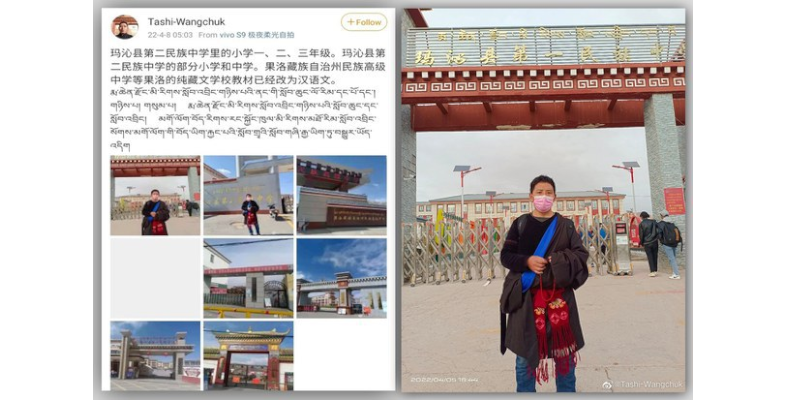Dharamshala, 17th April: Chinese authorities’ restrictions and monitoring of Tibet’s former political prisoners are nothing new. Authorities instructed hotel operators in Tibetan areas of western China to bar a Tibetan activist who was traveling to promote language rights, as per the RFA report. Tashi Wangchuk, a former political prisoner of roughly 35 years old, had been traveling around China’s Qinghai region since April 6, according to RFA who cited a Tibetan source residing in the area. Wangchuk, a citizen of Yulshul (Yushu) municipality in Qinghai, was freed on Jan. 28, 2021, after serving a prison sentence for “inciting separatism,” and is now being closely monitored by officials.
According to RFA, their source told them that Tashi Wangchuk had stopped by different Tibetan schools in Golog, Rebgong, and Malho on his trip from Yulshul to Siling to advocate for the use of the Tibetan language in Tibetan schools, but he was refused accommodation and removed from hotels in Rebgong [In Chinese, Tongren] and Malho [Huangnan]. Wangchuk was reported by RFA to be living at his brother’s home in Siling, where officials had imposed a 15-day COVID-19 quarantine on anyone visiting the area. Authorities, according to sources, are still keeping an eye on his actions.
The report says Wangchuk had posted images and videos of his travels to Tibetan schools in Darlag (Dali) county in the Golog (Guoluo) Tibetan Autonomous Prefecture and Rebgong, where Chinese authorities have banned the use of Tibetan in education.
Despite China’s assertions that all minorities have the right to bilingual education, Tibetan-language schools have been forced to close, and school-aged children in Tibet are commonly taught only in Mandarin Chinese. Similar measures have been implemented against ethnic Mongolians in Inner Mongolia, as well as Muslim Uyghurs in the Xinjiang region of northwest China.
In recent years, Tibetan efforts to define national identity have focused on language rights, with informally organized language schools in monasteries and towns deemed “illegal associations” and teachers detained and arrested.







Leave a Reply